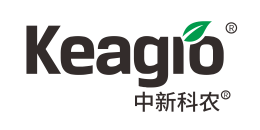 “We’re a company that mostly faces the farmer,” said Neal Gutterson, vice president of research and development. “We’ve been rethinking that a bit ... We know we need to engage the consumer more.”
“We’re a company that mostly faces the farmer,” said Neal Gutterson, vice president of research and development. “We’ve been rethinking that a bit ... We know we need to engage the consumer more.”The company wants to understand what concerns people have about genetically edited crops and has been conducting some focus groups to gain that insight.
While DuPont is still early in that learning process, the company expects it will need to communicate the benefits of CRISPR that resonate with consumers specifically rather than focusing on the benefits for farmers.
The average person walking through a grocery store might not care that gene editing can provide a grower a higher yield or makes a crop more resistant to certain diseases or pests, but that person might appreciate that the technology can enable a grower to use fewer pesticides and less water, for example.
CRISPR can also be used to improve nutrition and shelf life, Gutterson said.
He described the applications of the technology for fresh produce during the educational session “Technological Disruption Has Arrived: Cut-and-Paste Genomics and Computers that Learn” on Oct. 19.
CRISPR is not a particularly difficult tool to use, Gutterson said, noting that the key is beginning with a knowledge of the genome of the crop a company wants to edit.
“Those hurdles are not very big anymore,” Gutterson said, noting there are reference genomes for some crops already. ”The biggest hurdle, I think, truly is the knowledge of what genes develop what characteristics.”
He emphasized that CRISPR doesn’t add genes from other organisms. Instead, the technology essentially delivers faster the same results that could be gained through traditional plant breeding, Gutterson said.
Since many consumers are not familiar with that process, however, significant education will likely be required.
There are very few genetically edited fresh produce items on the market currently, but numerous companies nevertheless include a Non-GMO Project Verified label on their products because they know it is something for which consumers are looking.
GMOs have been vilified in the mainstream media and by environmental groups even though scientists as a whole have largely found no safety issues with them.


